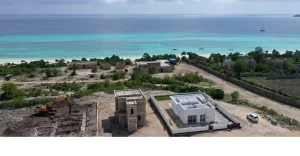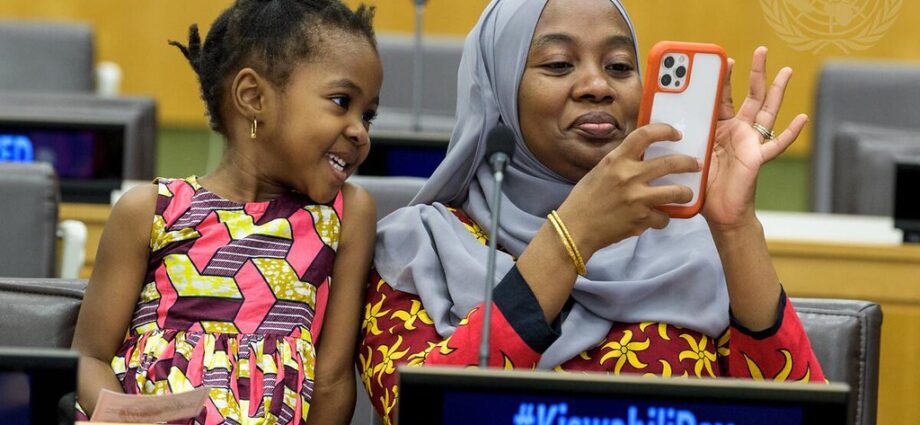THE United Nations should adopt Kiswahili as an official working language to get on board an authentic African language that is a lingua franca in most parts of Africa, the Minister for Constitutional and Legal Affairs, Dr Damas Ndumbaro has said.
He said in Dar es Salaam on Tuesday that it was time United Nations adopted Kiswahili as one of its official languages because it is the only true authentic and indigenous African language that is widely spoken across the globe.
“It is high time now the UN adopts Kiswahili as its official language, and we believe when we are celebrating the next 78th United Nations anniversary will be using Kiswahili. This will be after it has been accepted by the UN,” said Dr Ndumbaro at the event to commemorate the United Nations Day which was accompanied by launching of the first and only UN website in Kiswahili.
Kiswahili is a lingua franca in the African Great Lakes region and East and Southern Africa, including some parts of the Democratic Republic of the Congo (DRC), Malawi, Mozambique, the southern tip of Somalia, and Zambia.
It is considered as the tenth most spoken language, which is spoken by over 200 million people globally.
It is one of three official languages of the East African Community (EAC), and one of the working languages of the African Union and of the Southern African Development Community.
He pointed out that Tanzania, as the birth place of Kiswahili language takes pride in the landmark decision by the United Nations Educational and Scientific Organization (UNESCO) of November 23, last year to designate July 7 as the World Kiswahili Language Day.
The minister said that due to the decision, the first International Day of Kiswahili was commemorated this year.
He commended the UNESCO and the United Nations for promoting multilingualism as an essential element in achieving the 2030 Agenda for as an essential element in achieving the 2030 Agenda for Sustainable Development (SDGs).
“We are also appreciative of all the roles being played by various stakeholders in the growth of Kiswahili language.
“I applaud the efforts of UN Tanzania in creating the Kiswahili website that we have launched… this will not only promote the use of Kiswahili but it will also make the UN website more accessible by a bigger Tanzania readership,” said Dr Ndumbaro.
He welcomed other development partners to follow suit by adding Kiswahili to their own websites, noting that when delivering a message to people using the language they understand it can be widely disseminated.
Expounding further, the minister attributed the launch of the website as a huge deserved stepping stone towards recognising Kiswahili as a crucial language.
The UN Resident Coordinator, Mr Zlatan Milisic, commended the government of Tanzania for its longstanding, sustained commitment to the United Nations and multilateralism.
“This UN birthday is perhaps also an opportune time to reflect on the future,” said Mr Milisic, pointing out that the second “SDG Summit” – the High-level Political Forum on Sustainable Development under the auspices of the General Assembly will be convened in September 2023 during the General Assembly high-level week in New York.
He said that the summit will mark the mid-point in the implementation of the 2030 Agenda and the Sustainable Development Goals.
“Goal 17 of the Sustainable Development Goals (SDGs) calls for partnerships and recognizes multi-stakeholder collaboration as important vehicles for mobilizing and sharing knowledge, expertise, technologies, and financial resources to support the achievement of the sustainable development goals in all countries, particularly developing countries.
“It is only by ensuring that we have all hands on deck, while addressing inequalities and emphasizing that no one is left behind , will we be able to achieve the SDGs,” stressed the UN Resident Coordinator.
For his part, the Executive Director of the UN Association of Tanzania, Mr Reynald Maeda, called for government financial inclusion, economic empowerment, inclusive representation and meaningful participation in decision making by the youth for true meaning of inclusive community.
Source: allafrica.com
Share this news
This Year’s Most Read News Stories

How new crop insurance will change farmers’ fortunes
Initiative is a shot in the arm for agriculture, which is currently virtually uninsured with just 0.17 percent of all general insurance sales.Continue Reading

Tanzania readying to talk to British developer over Zanzibar land lease revocation
Dar es Salaam. British firm Pennyroyal Limited has said it will sue the Tanzanian government over leasehold revocation in Zanzibar, but the Attorney General has confirmed that they are preparing to meet with the investor.Continue Reading

Mbeto on Mwinyi: He created today’s affluent people
The CCM Secretary of Ideology and Publicity (Zanzibar), Mr Khamis Mbeto Khamis, said the late President Ali Hassan Mwinyi was the architect of the current class of affluent people.Continue Reading











